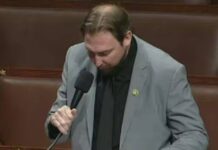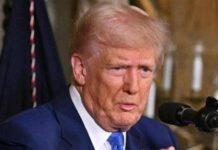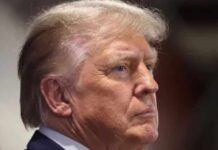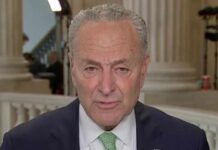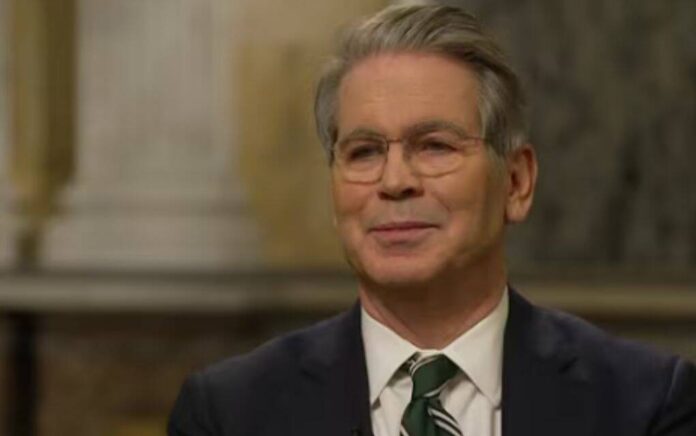
The second Trump admin is reforming the government, whether DC likes it or not. What’s next will change everything.
As a Trump official just unveiled a genius new plan on Fox News that absolutely no one saw coming.
Treasury Secretary Scott Bessent Reveals Tariffs To Potentially Replace Income Taxes
In a recent appearance on Fox News, Treasury Secretary Scott Bessent elaborated on President Donald Trump’s economic strategies, focusing on the potential fiscal benefits of implementing global tariffs and their minimal impact on consumers. Bessent’s analysis, shared during a segment of Special Report with Bret Baier, highlighted the unique approach the Trump administration has taken with tariffs, and how these measures could reshape the global economy.
One of the key points Bessent emphasized was the idea that the imposition of tariffs would not heavily burden consumers, as many might assume. He argued that the economic adjustments stemming from tariffs would be absorbed by exporters, rather than passed down directly to consumers. Bessent explained, “I think that very little of that would be passed on to the consumer, that I think the currency adjusts. I think that, especially China, that the companies on the other side, the exporters, are going to eat a lot of the cost.” This insight suggests that the intended effects of tariffs—namely to alter trade practices and strengthen the U.S. economy—would come with little financial strain for American shoppers.
Bessent went on to discuss the three primary ways that President Trump has leveraged tariffs in his administration. Unlike past presidents, Trump’s approach to tariffs is multifaceted, combining revenue generation, trade fairness, and negotiation tactics.
One potential outcome of implementing global tariffs is a substantial increase in government revenue. According to Bessent, a 10 percent global tariff could generate a whopping $2.5 trillion over a decade. Bessent also highlighted that the tariffs serve to level the playing field, as many of the U.S.’s trading partners are not perceived as treating America fairly in terms of trade policies.
In addition to the financial and fairness aspects, Trump’s administration uses tariffs as a strategic negotiating tool. Bessent pointed to previous examples such as negotiations with Colombia, as well as ongoing talks with Mexico and Canada. These tariffs have been employed as a means of addressing broader issues, like the ongoing fentanyl crisis, which has been exacerbated by illegal drug trade.
Another key aspect of Bessent’s commentary focused on the broader economic strategies designed to complement tariffs. In particular, he discussed how domestic policy adjustments, such as reducing energy prices and deregulation, could work in tandem with tariffs to manage inflation. Bessent expressed optimism that these combined efforts would keep inflation well below the Federal Reserve’s target of 2 percent, stating, “I think for overall inflation, when we get energy prices down, when we deregulate, that, as we saw in President Trump’s first term, inflation is going to be under control at the Fed’s target of 2 percent, probably less.”
Bessent’s belief is that by tackling both domestic and international economic issues simultaneously, the Trump administration could maintain a stable economy without the threat of runaway inflation.
Trump’s Global Tariff Announcement and International Reactions
On February 1, President Trump introduced a comprehensive set of tariffs on imports from China, Canada, and Mexico. These measures were designed with two primary goals: curbing illegal immigration and addressing the inflow of drugs like fentanyl from these countries. In response to the announcement, Mexico took swift action by deploying thousands of troops along the U.S.-Mexico border in an effort to halt the illegal drug trade and the entry of unauthorized migrants.
Similarly, Canadian Prime Minister Justin Trudeau responded by committing to bolster security along the U.S.-Canada border. As a result of these actions, President Trump agreed to suspend tariffs against both countries for a 30-day period, providing room for further negotiations.
In the wake of Trump’s global tariffs announcement, Taiwan also signaled its intention to deepen its economic ties with the U.S. President Lai Ching-te of Taiwan committed to increasing investment in the U.S. and expanding discussions around the semiconductor industry, a sector that has become increasingly important to both nations.
Treasury Secretary Scott Bessent’s comments provide a detailed explanation of how President Trump’s administration is using tariffs as part of a broader economic strategy. By minimizing the impact on consumers, generating government revenue, promoting fair trade, and negotiating more favorable international agreements, Trump’s tariff policies could once more tip the favor of the global economy back towards the United States.
The Federalist Wire will update you on any major economic news coming from the Trump administration.



